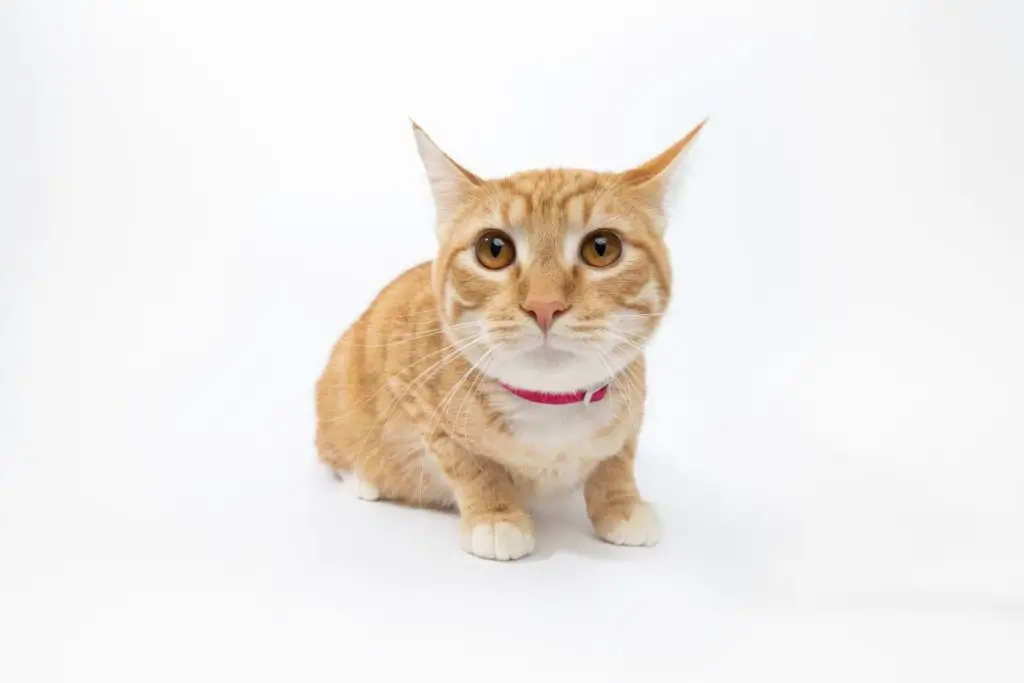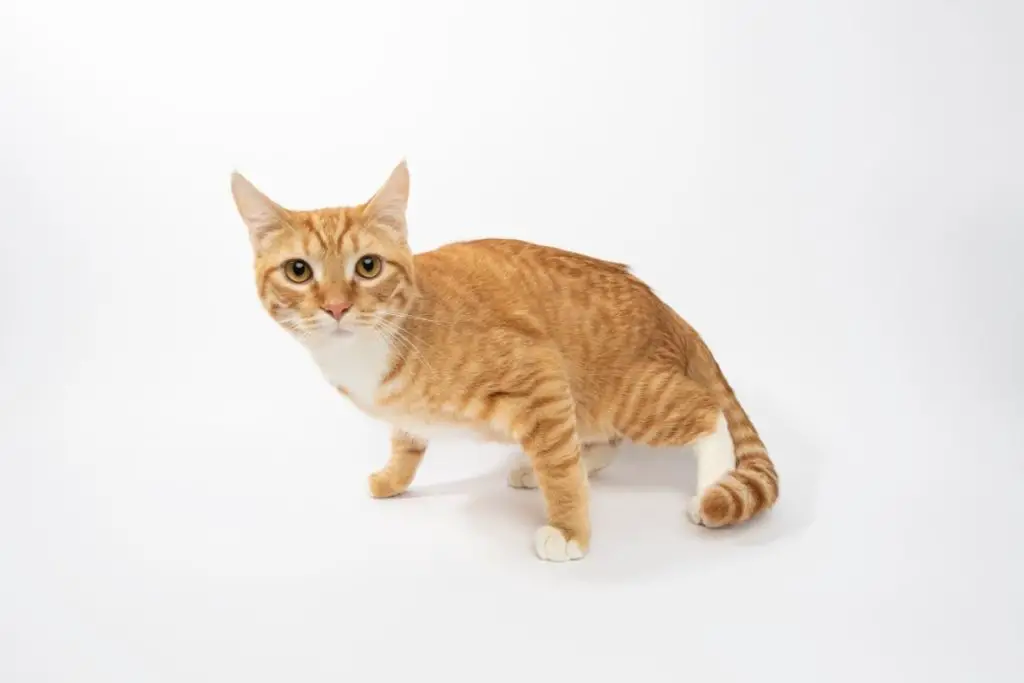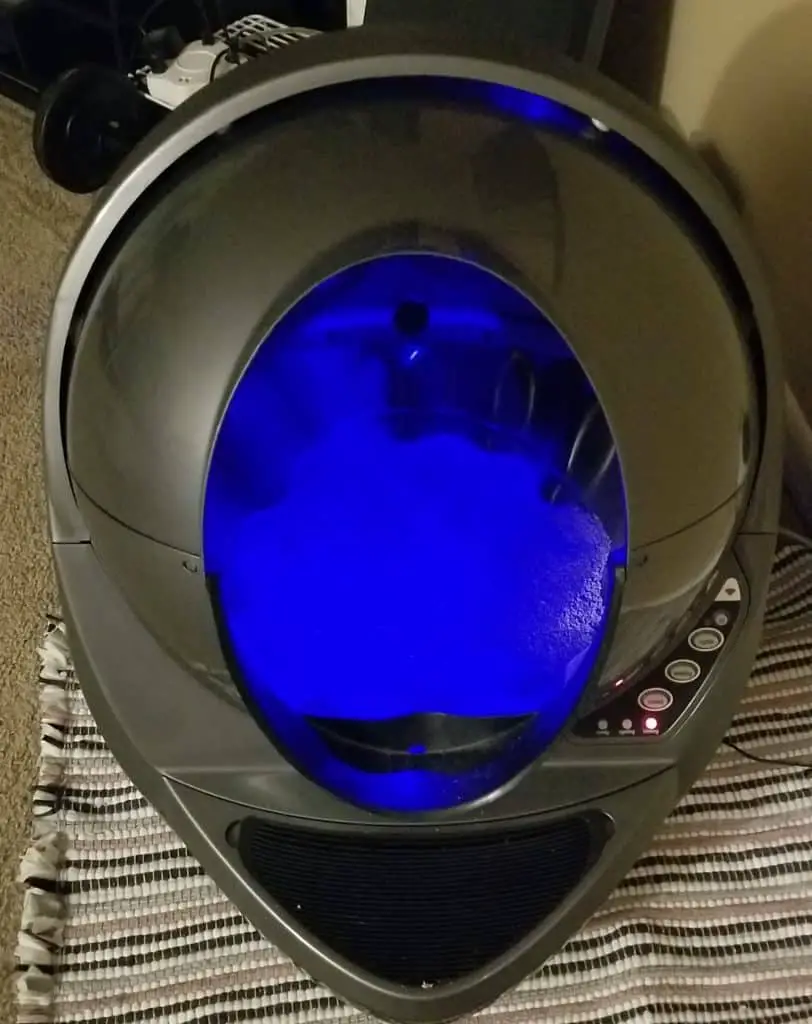More Meows is an Amazon Associate. As an Amazon Associate we earn from qualifying purchases. We may also earn commissions if you purchase products from other retailers after clicking on a link from our site.
I am a proponent of keeping your cat indoors unless you have a safe way to take your cat outside (i.e., cat stroller, cat harness and leash, catio, etc.). Therefore, I put together a list of 9 reasons why indoor cats are better than outdoor cats. I hope you enjoy this list!
1. Are Indoor Cats Healthier?
Yes, indoor cats are healthier than outdoor cats. Indoor cats usually only need to visit the veterinarian for checkups and vaccinations. However, outdoor cats roam free and easily get infections from fights, broken bones, or contract various diseases and conditions.
These situations inevitably lead to extra vet visits that cat owners and cat owners’ wallets didn’t prepare for. We all know that even the essential vaccination visit to the vet can cost an arm and a leg. Speaking of legs, the average yearly cost of fixing a cat’s broken bones, according to Vetmed, can cost an astonishing $2,257.
Pet lovers usually underestimate the cost of keeping and caring for their animals. Here’s a preview of how you might spend your hard-earned money if things go wrong by allowing your cat to roam free:
| Treatment | Average 1st-year cost |
| Diarrhea/Intestinal Upset | $203 – $385 |
| Ear Infection | $40 – $149.30 |
| Stomach Foreign Object | $3,262 – $2,955 |
| Flea and Tick Control | $40 – $200 |
Cats can easily contract fleas, ticks, and ear mites from other four-legged companions that roam outside.
Indoor cats are just healthier, so keeping your feline away from outside dangers and enemies is simply the best decision.

2. Can Indoor Cats Get Viruses?
Yes, it is possible indoor cats can get viruses, however, keeping your cat inside means far less exposure to viruses than outdoor cats. Keeping your cat inside will usually keep your cat healthier than if she were an outdoor cat.
One of those diseases is the Feline Leukemia Virus (FeLV), contracted through blood, feces, and saliva. According to WebMD, 85% of cats succumb to this killer virus within three years of contracting it.
Symptoms of FeLV include fever, diarrhea, breathing problems, weakness, loss of appetite, and oral diseases, to name only a few. The good news is that only 3% of single-cat households contract the virus. This percentage is even lower with cats that are being kept indoors.
Another virus your cat won’t be able to contract is Feline Immunodeficiency Virus (FIV), which is also called cat HIV. This virus attacks white blood cells, weakening the cat’s immune system.
Symptoms of FIV include the following:
- Diarrhea;
- Seizures;
- Fever;
- Gum inflammation;
- Changes in behavior.
FIV is contracted through deep bites and shared litter boxes. If you keep your feline inside, you will naturally eliminate these dangers.
3. Indoor Cats Live Longer
We form such deep bonds with our cats. Some of them even become our best friends, and we can prolong these friendships by keeping our felines inside.
According to Wikipedia, the average life span of an indoor cat is roughly 16.9 years, while that of an outdoor cat is only 5.6 years.
There are countless dangers outside, from predators and head injuries to poisonous plants and diseases. Unfortunately, the outside is often a dangerous and scary place.
Because indoor cats will never encounter dangerous or traumatic situations, they have a much longer lifespan.
But, indoors doesn’t necessarily mean never to allow your furry friend to go outside. Check out this handy DIY YouTube video on building an outside enclosure for a mere $80 – $100.
Creme Puff, a domestic cat from Texas, lived up to 38 years and 3 days. Her owner, Jake Perry, kept her active inside the house and built a screened enclosure outside where she could be safe from outside dangers while still enjoying the outside.

4. Do House Cats Hunt?
Yes, house cats will hunt when they have prey. Cats have instincts to hunt and kill their prey. If an indoor cat does not have prey you will probably find them hunting a small toy or your laser pointer.
Often, these innocent wildlife victims are detrimental to their native population and the overall survival of their species. For example, a shocking and staggering statistic from Nature Communications proves that cats allowed to roam outside kill 1.3 – 4.0 billion birds and 6.3 – 22.3 billion mammals per year in the United States alone.
By keeping your cat indoors, you will not only do her a favor, but you will also take one small step in saving the planet.
It’s easy to redirect your feline’s natural hunting instinct. Provide your cat with a toy that she can catch and chase, you will automatically stimulate her innate drive to hunt, capture, and kill.
Who knows better than The International Cat Association (TICA). The Marketing Director of this association confirms that ‘It’s important to enrich your cat’s life with prey play,’ and prey play is even more important with indoor cats.
To learn more about cats and hunting, check out this article: Do Cats Like To Hunt? (The Detailed Answer).
5. Are Indoor Cats Clean?
Yes, indoor cats are clean. Indoor cats are also cleaner than outdoor cats. All cats try to keep themselves clean and indoor cats can do this better since they are in a cleaner environment.
Because indoor cats are less exposed to insects, ticks, soil, and prey, the chances of bringing home parasites and contracting diseases are much less than outdoor cats.
By allowing your cat to roam outside, she can get infected with the gondii parasite. In turn, you can get Toxoplasmosis from coming in close contact with your cat’s feces.
This disease is especially dangerous to pregnant women and people whose immune systems are compromised. In addition, toxoplasmosis can be transferred to infants. Although they might not show any symptoms at birth, there is a chance that they will develop mental disabilities or blindness later on in their developing years.
A cat that is kept indoors also has a smaller chance of getting fleas. Apart from constantly scratching and itching, a cat infected with fleas might carry the B. henselae bacteria, which is transferrable to humans and known as cat scratch fever.
Humans that get infected with cat scratch fever often suffer from the following symptoms:
- Headaches;
- Fatigue;
- Body aches;
- Swollen lymph nodes.
Keeping your furry friend indoors will ensure that both you and your cat are free from these irritating parasites and fleas.
Here are some of my favorite cat products
In addition to checking out some other More Meows articles, I hope you’ll check out some of my favorite cat products as well. These are affiliate links, so if you end up using them, I’ll get a commission at no extra cost to you. These are the products I really do find most helpful.
Litter Box: I started out with normal, traditional litter boxes for my cat. Then, I tried this automatic litter box on Amazon (affiliate link), which helped reduce the litter upkeep. Finally, I am now a believer in the Litter-Robot 3 Connect on Amazon (affiliate link). This robotic litter box is not for everyone based on the price tag, but for me the benefits (very little upkeep, works efficiently, clean, mobile app) far outweighed the cost.

Cat Tree: I have purchased a couple of this Amazon Basics Cat Tree on Amazon (affiliate link). My cat spends a lot of time on and around this cat tree, which I position near my sofa. She uses the scratching posts on this cat tree multiple times a day, which means she is not scratching the sofa instead.
Cat Water Fountain: I love this cat water fountain on Amazon (affiliate link). There are three main benefits to having a water fountain like this for your cat. The first benefit is that it keeps water running so that your cat doesn’t need to drink still water. The second benefit is that it filters the water. The third benefit is that it will keep your cat hydrated!
6. Are Indoor Cats Safer?
Yes, indoor cats are safer because they have the security of a house to keep them secure. Additionally, indoor cats come into less contact with feral or stray cats that often carry diseases.
An outdoor cat faces the daily dangers of getting lost or stolen. Sometimes, they even decide to adopt new owners. Unfortunately, these scenarios are equally devastating for a loving cat owner; luckily, indoor cat owners aren’t faced with such worries.
Cats often get lost if chased by dogs or trapped under houses or inside basements or sheds. If your indoor cat accidentally gets lost outside, the chances are good that she will be found within a 5-house radius.
Outdoor cats are a different story, though. According to Daily Paws, a study conducted in 2017 proved that outdoor cats are often found much farther away, with a ‘median distance’ of around 300 meters.
Outdoor cats sometimes ‘leave home’ when they are close to dying. More often than not, though, it is more a question of hiding from predators than leaving their humans. However, these cats are aware of the fact that they are weak and vulnerable, so they often get themselves into tricky situations where returning home is not that easy.
If your cat is living indoors, there is no chance that she will be hiding from predators or dying alone. Instead, you, her human companion, will be able to say goodbye and ensure that her last days are filled with love, care, and compassion.
Read more about letting your cats outside: Are Cat Doors Safe? (Best Information).
7. Do House Cats Eat Birds?
Yes, house cats eat birds. House cats will normally not have the opportunity to eat birds since they are indoor cats and birds live outside. If you have a pet bird and a pet cat you should watch your cat closely since they will hunt and eat the pet bird.
By keeping your cat indoors, you can ensure that her diet is filled with all the proper nutrients, proteins, and vitamins she so rightly deserves. Furthermore, she’ll be getting the right amount of food, which is vital in ensuring a healthy weight.
There are many cat-lovers in every neighborhood around the world, and these neighbors often don’t realize the damage they’re doing by overfeeding felines that enter their yards.
According to HuffPost, the animal charity PDSA found around 34% of cats visiting vets every week are obese. This obesity is often caused by cats eating food elsewhere than at home.
As people can’t control the quality of food their cats get elsewhere, cheap food can also lead to various health issues. When most people encounter roaming cats at their homes, they want to feed them fish and milk. That’s not ideal, though.
Tuna, for instance, can be detrimental to a cat’s health as it doesn’t contain enough nutrients and might lead to malnutrition. On the other hand, milk can lead to diarrhea because most cats are lactose-intolerant.
So, keeping your cat indoors is the best option for her health as well as her weight.
8. Do Wild Animals Eat Cats?
Wild animals such as wolves, coyotes, and eagles will hunt and eat cats if they are nearby. Dogs are also a major threat to outdoor cats.
By keeping your cat safely inside, you will also be keeping her from getting gravely injured or even killed. A roaming cat constantly faces dangerous encounters from dogs, coyotes, raccoons, or other wild animals.
According to Cats Protection, the UK’s leading cat welfare charity, of the 270 dogs killing cats cases reported in the past five years, 80% of those attacks were fatal. Although these attacks don’t always lead to sudden death, cats can get serious diseases and infections from other animals’ bites and claws.
Apart from the endless vet bills owners are left with when their cats get injured by these attacks, it is inevitable that some argument will also arise between cat owners and their neighbors. Sometimes, these arguments also lead to lawsuits: a very stressful and tiring affair.
Keeping your cat indoors will save yourself from endless vet bills, angry neighbors, possible lawsuits, and unnecessary stress.
9. Cat Poisoned
Outdoor cats are at risk to be poisoned. Some examples of how outdoor cats can get poisoned are drinking antifreeze, drinking tainted water, and weed killers. However, indoor cats are much safer from poisoning than outdoor cats.
Because cats are such avid self-cleaners, they can easily digest poisonous substances that stick to their coats. However, keeping your cat indoors gives you much more control over the household substances your feline friend gets in contact with.
According to Cats Protection, cats are likely to have a more difficult time than dogs recovering from ingesting poison. The list of poisonous household substances is staggering. Here are a few:
- Insect killers;
- Antifreeze;
- Slug bait;
- Weed killers;
- Rodent bait;
- Certain flowers like tiger lilies;
- Chocolate;
- Grapes.
Outdoor cats have a much greater chance to digest these substances. An antifreeze spill, for example, on a neighbor’s driveway is detrimental to a feline. All it takes is for her to walk through the puddle and then do some self-cleaning later on in the day.
Like most other ‘poisons, ‘ Antifreeze will attack your cat’s kidneys and might lead to a painful and unnecessary death.
If you keep your cat indoors, she will never walk on your pavement or wander between your flower beds. Instead, she will be happy and safe if you ensure that poisonous substances are well beyond her reach.
To learn more about the danger of antifreeze check out this article: Will Stray Cats Drink Antifreeze? Scary Info Here!
Conclusion
In conclusion, there are many reasons indoor cats are better than outdoor cats. A few of those reasons are cats being cleaner, safer from viruses, and safer from poisoning. If you enjoyed this article, please read a few more:
- Do Feral Cats Want To Be Indoors? Serious Advice: Click Here To Read.
- Do Feral Cats Look Different? The Reason Is Interesting: Click Here To Read.
- Do Feral Cats Fight To The Death? Find Out Now: Click Here.
